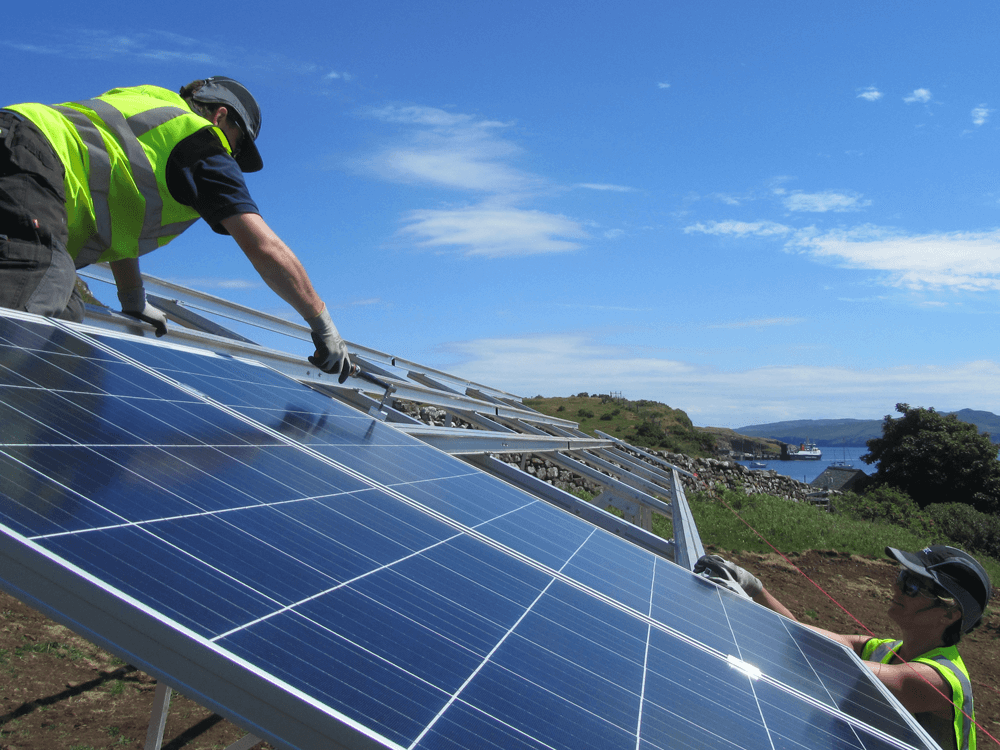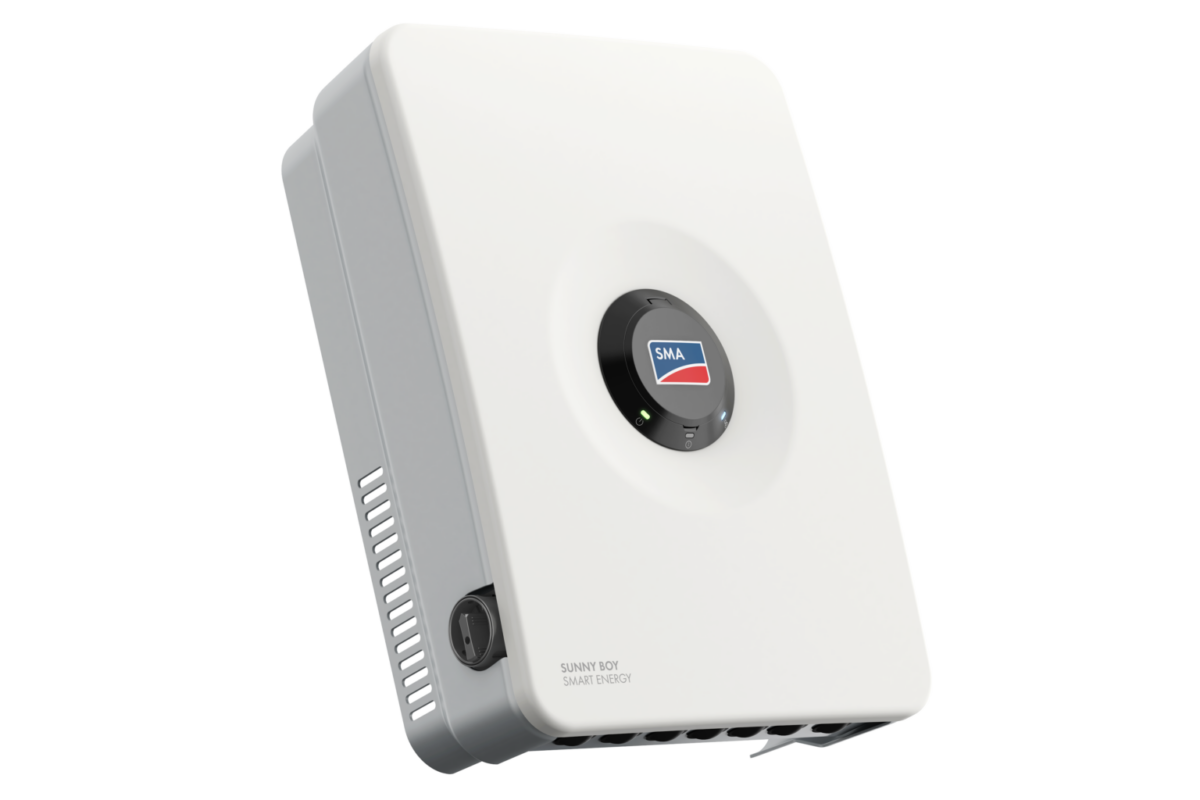Residents on two of the United Kingdom’s remotest islands are celebrating after securing a sustainable, 24 hour electricity supply.
Ditching their dependence on diesel generators, and suffering from nightly blackouts, the Scottish islands of Fair Isle (55 inhabitants), and Canna and Sanday (15 inhabitants), are the new recipients of combined wind, solar and energy storage systems.
The former has seen the installation of a 51.8 kWp PV system, three 60 kW wind turbines and 588 kWh worth of batteries; while the latter is the recipient of a 34.56 kWp PV system, six 6 kW wind turbines and 225 kW worth of energy storage.
“After shipping equipment from the mainland, Wind & Sun carried out the installation during several trips over the summer fitting the battery storage, inverter system and PV arrays …. Finally the wind turbines were delivered, erected and connected up by Harbon Wind on Fair Isle and SD Wind Energy on Canna/Sanday,” read a statement released.
It adds that in the event of insufficient renewable energy, a back-up generator will power the islands’ properties and re-charge the batteries. “It is expected that this will now be needed less than 10% of the time.”
In terms of investment, Fair Isle saw over £3 million funneled into the project, while around £1.3 million went into the Canna and Sanday project, with funds coming from, among others, the Scottish Government, the EU, the Big Lottery Fund, Shetland Islands Council, Fair Isle Electricity Company, National Trust for Scotland and Highlands & Islands Enterprise.
The systems have been commissioned by Wind & Sun, which has also worked on similar projects on the isles of Eigg and Muck, in partnership with SSE Contracting, Solar Kinetics and Profit Energy. The local residents will operate them under newly established enterprises, having been trained by Wind & Sun. The company will also provide ongoing support.
“Electricity will be provided to residents after which profits from the power generated will be used to cover operation and maintenance costs, and reduce bills for local homes and businesses,” continued the statement.
Renewable energy analytics
Meanwhile, £2.9 million has been invested by the UK Space Agency International Partnership Programme (IPP) to roll out a renewable energy analytics platform – RE-SAT – to support the transition from fossil fuels to renewable energy on six island states in the Caribbean, Pacific and Indian oceans. They are Montserrat, St Lucia, Mauritius, Palau, Tonga and Vanuatu.
“The IEA will work in partnership with the governments of the SIDS, their utilities companies, their energy regulators and the United Nations Development Programme (UNDP) to tailor RE-SAT to the needs of each state and build the capacity of energy providers, policy-makers and planners to support its implementation, combining our expertise with in-country knowledge and skills,” read a statement issued today.
It said that satellite and in-situ weather data will be combined with advanced analytics to help define the best renewable energy mix for the island, look at where new projects could be located, examine the potential financial viability of renewable energy investments, and estimate power production and variability.
This content is protected by copyright and may not be reused. If you want to cooperate with us and would like to reuse some of our content, please contact: editors@pv-magazine.com.




1 comment
By submitting this form you agree to pv magazine using your data for the purposes of publishing your comment.
Your personal data will only be disclosed or otherwise transmitted to third parties for the purposes of spam filtering or if this is necessary for technical maintenance of the website. Any other transfer to third parties will not take place unless this is justified on the basis of applicable data protection regulations or if pv magazine is legally obliged to do so.
You may revoke this consent at any time with effect for the future, in which case your personal data will be deleted immediately. Otherwise, your data will be deleted if pv magazine has processed your request or the purpose of data storage is fulfilled.
Further information on data privacy can be found in our Data Protection Policy.